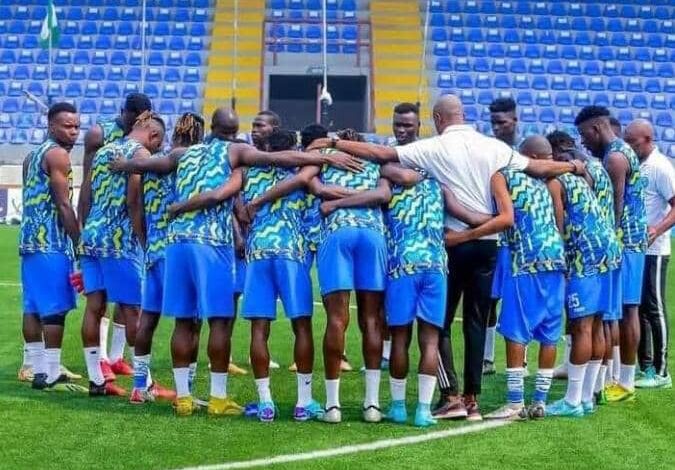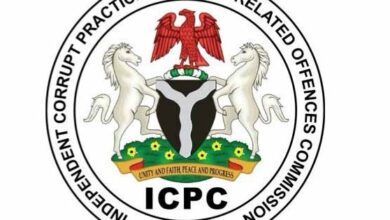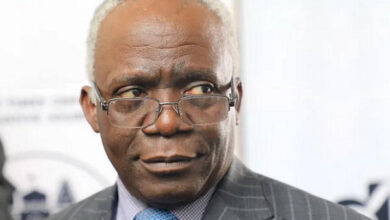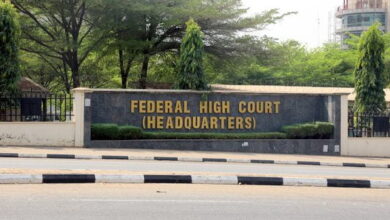Warri Wolves suffer travel nightmare as buses collapse en route to Maiduguri

Nigeria stands today at a crossroads of belonging. At stake is not just a legal debate, but the very survival of our union. The question is as old as our independence yet as urgent as this morning’s headlines: Who truly belongs?
Our Constitution is unambiguous. It guarantees every Nigerian the right to live, work, own property, and seek opportunity anywhere within the federation.
Yet beneath this promise lies a dangerous contradiction. The Land Use Decree of 1978, later enshrined as the Land Use Act in the 1979 and 1999 Constitutions, vested all land in each state in the governor, to be held in trust for the people. Conceived to simplify ownership and curb speculation, it instead centralized control, weakened communal rights, and entrenched bureaucracy.
By tying access to political authority, this “militarist ideology” now governs land administration in our so-called constitutional democracy—fueling corruption, discrimination, and exclusion. In Yoruba land, for example, our kings lost their unquestionability over land, stripped by fiat of ancestral authority.
This is the paradox: the Constitution takes land from the people, vests it in governors “in trust,” and yet daily practice still chains Nigerians to Certificates of Origin, bloodline tests, and ancestry walls. It is the residue of a colonial slavery mentality that continues to haunt us—citizens reduced to tenants in their own country.
Lagos as Case Study
Lagos is the perfect mirror. This city did not rise to become Nigeria’s heartbeat by shutting doors. Its greatness came because Egba and Ijebu traders, Nupe and Hausa merchants, Igbo entrepreneurs, Brazilian returnees—all came here and found home. If Lagos had chosen exclusion, it would have strangled its own destiny.
And yet today, proposals such as YEPC’s—seeking to restrict land ownership to “indigenes” and tightening identity claims—risk rewriting that history of openness. Such ideas are not merely unconstitutional; they are anti-development.
They whisper to millions of Nigerians: you may be a citizen in law, but you are a stranger in practice.
Every Certificate of Origin we issue is nothing less than a silent vote of no confidence in our unity.
The way forward is not to erase indigene identity, but to ensure it does not erase another’s citizenship. Nigeria needs a Ministry of Belonging—an evolved Interior Ministry that guarantees no Nigerian is treated as a foreigner in their own country, replaces exclusionary papers with a National Citizenship Card, and mediates identity disputes.
Unity is never built by drawing tighter tribal circles. It is built by widening the circle of nationhood. The Lagos lesson is clear: Nigeria thrives when belonging is inclusive, when culture is balanced with citizenship, and when law protects even the weakest from discrimination.
The question is not who owns Lagos, but whether Lagos—and Nigeria—can still own us all.
Rebuttals to Common Arguments
1. “Indigenes should own the land.”
Land is sacred, yes. But citizenship is sacrosanct. The Constitution guarantees property rights for every Nigerian. To restrict land only to indigenes is not just unlawful—it is a direct assault on national unity.
2. “Certificate of Origin is necessary for fairness.”
A Certificate of Origin is a certificate of exclusion. It tells a Nigerian child born in Lagos but of parents from elsewhere: you may grow here, but you cannot belong here. True fairness is built on equal citizenship, not ancestry walls.
3. “Lineage determines belonging.”
It is ironic: many in Nigeria’s elite struggle to have their children born abroad for the privilege of citizenship by birth where the grass is greener—yet they refuse to water the grass of citizenship at home. If bloodline were the measure of belonging, America would never have produced Barack Obama. Contribution—not lineage—must define citizenship.
4. “Indigene rights must be protected against strangers.”
The real stranger in Nigeria is injustice, not your neighbour. The Constitution already protects culture and heritage. What it forbids is discrimination. Protecting indigenes must never translate into oppressing citizens.
5. “Lagos belongs to the indigenes.”
History tells another story. Lagos became Lagos because it welcomed all—Nupe traders, Brazilian returnees, Hausa horsemen, Igbo entrepreneurs. To close the door now is to betray the very spirit of Lagos.
6. “We must defend our heritage.”
Heritage is strongest when it is shared. A Yoruba proverb says: A kii f’omo eni ju’ta, ka fi omo olomo se’yan—you don’t reject your own child to exalt another’s.
If a Brazilian-Nigerian can dream and be fulfilled in Lagos, why should an Igbo-Nigerian be stopped in Lagos, or a Yoruba-Nigerian be stopped in Sokoto from becoming Medical Director of a federal hospital? Let us defend heritage without destroying unity.
7. “Residency can’t equal indigeneship.”
Residency is the truest test of loyalty. If I live, pay tax, vote, and contribute to a state for 20 years, am I less loyal than someone who left his village 30 years ago but still claims indigeneship? We must reward contribution, not ancestry.
On Unity
“Every time we ask for Certificate of Origin, we tear a Certificate of Unity. Nigeria cannot be one nation on paper and 36 nations in practice.”
On Lagos
“Lagos belongs to no one because Lagos belongs to everyone. Until Nigeria learns that lesson, we will remain a country of neighbours, not citizens.”
On the Future
“Our children don’t need a lineage test; they need a citizenship guarantee. If we fix that, Nigeria will stop being a geography and start being a nation.”
This is not an academic debate. It is a survival project. Nigeria will either rise to the challenge of inclusive citizenship—or collapse under the weight of exclusionary identity.
Post Views: 155





